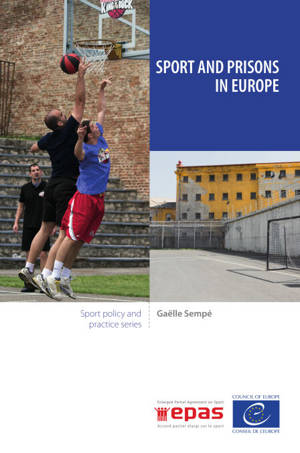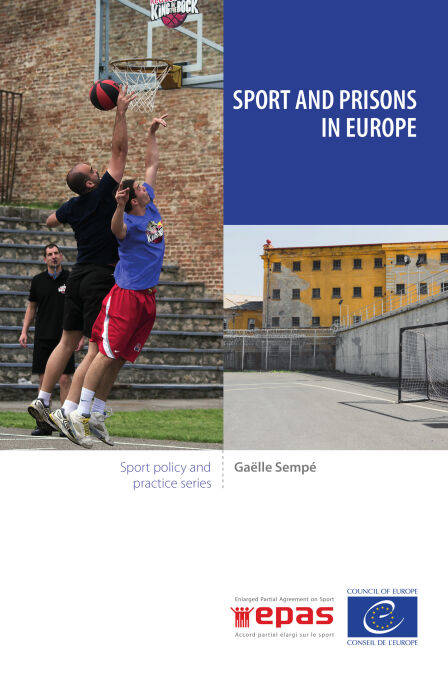
- Retrait gratuit dans votre magasin Club
- 7.000.000 titres dans notre catalogue
- Payer en toute sécurité
- Toujours un magasin près de chez vous
- Retrait gratuit dans votre magasin Club
- 7.000.0000 titres dans notre catalogue
- Payer en toute sécurité
- Toujours un magasin près de chez vous
Description
Improve the well-being of prisoners in detention, enable them to change their behavior and attitudes, develop their ability to live together, learn to respect others and abide by the rules, and thus facilitate their reintegration into society, these are the objectives of a prison sports policy.
There has been growing recognition of the value of sport by the prison system. Its effects are highly beneficial to those in detention and to prison life in general. However, looking at the objectives through to the challenges, we can see that the link between sport and prison is a complex one, and in order to understand it better and to see what lessons can be learned, an in-depth thinking process is required, based on current scientific knowledge in this field and on state policies and practices being implemented in prisons.In the framework of its activities promoting diversity in and through sport, the Enlarged Partial Agreement on Sport (EPAS) of the Council of Europe has been working on the subject of sport and prison since 2013, in close connection with the Council for Penological Co-operation (PC-CP). Following an expert seminar organised in Strasbourg in 2013, a pan-European conference was held in Paris in 2014. The results of a survey which highlighted the numerous examples of good practice regarding sports programmes were discussed. The conference highlighted the need to record the different points of view regarding sport in prison at a pan-European level in order to identify the real challenges.
Gaëlle Sempé is a lecturer in sociology, sports science and physical education training (STAPS), and teacher-researcher at Rennes University 2. Mr Vivian Geiran, author of the foreword, is chair of the Council for Penological Co-operation (PC-CP) of the Council of Europe.The Enlarged Partial Agreement on Sport (EPAS) is an agreement between a number of Council of Europe member states (38 as of 1 January 2018) which have decided to co-operate in the field of sports policy. As an “enlarged” agreement, EPAS is open to non-member states. It works in co-operation with relevant organisations, in particular with representatives of the sports movement.
There has been growing recognition of the value of sport by the prison system. Its effects are highly beneficial to those in detention and to prison life in general. However, looking at the objectives through to the challenges, we can see that the link between sport and prison is a complex one, and in order to understand it better and to see what lessons can be learned, an in-depth thinking process is required, based on current scientific knowledge in this field and on state policies and practices being implemented in prisons.In the framework of its activities promoting diversity in and through sport, the Enlarged Partial Agreement on Sport (EPAS) of the Council of Europe has been working on the subject of sport and prison since 2013, in close connection with the Council for Penological Co-operation (PC-CP). Following an expert seminar organised in Strasbourg in 2013, a pan-European conference was held in Paris in 2014. The results of a survey which highlighted the numerous examples of good practice regarding sports programmes were discussed. The conference highlighted the need to record the different points of view regarding sport in prison at a pan-European level in order to identify the real challenges.
Gaëlle Sempé is a lecturer in sociology, sports science and physical education training (STAPS), and teacher-researcher at Rennes University 2. Mr Vivian Geiran, author of the foreword, is chair of the Council for Penological Co-operation (PC-CP) of the Council of Europe.The Enlarged Partial Agreement on Sport (EPAS) is an agreement between a number of Council of Europe member states (38 as of 1 January 2018) which have decided to co-operate in the field of sports policy. As an “enlarged” agreement, EPAS is open to non-member states. It works in co-operation with relevant organisations, in particular with representatives of the sports movement.
Spécifications
Parties prenantes
- Auteur(s) :
- Editeur:
Contenu
- Langue:
- Anglais
Caractéristiques
- EAN:
- 9789287189318
- Date de parution :
- 16-12-18
- Format:
- Ebook
- Protection digitale:
- /
- Format numérique:
- ePub

Les avis
Nous publions uniquement les avis qui respectent les conditions requises. Consultez nos conditions pour les avis.






